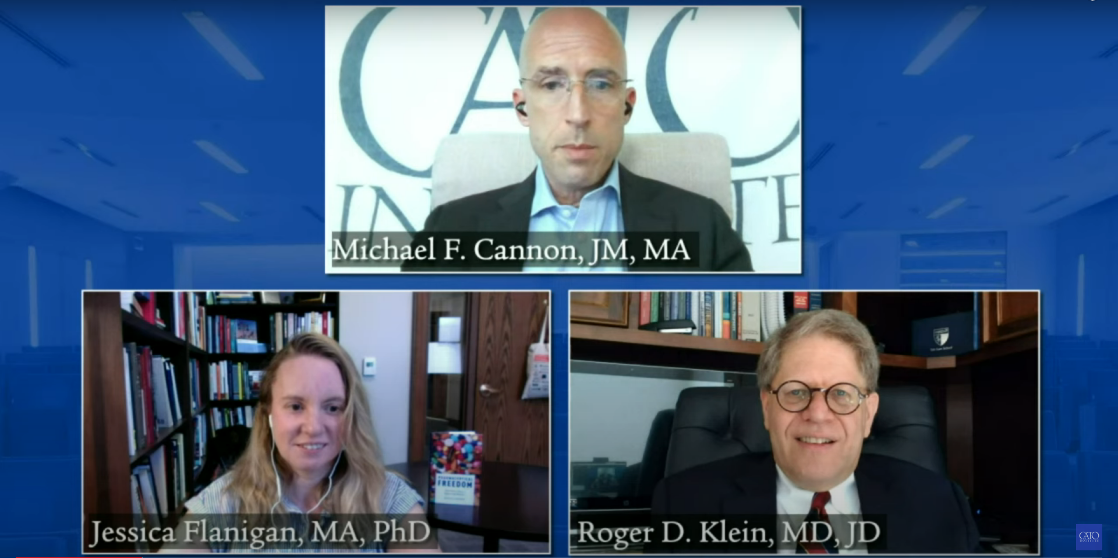Early Coronavirus Testing Insufficient, Regulatory Barriers Too Strict, says CATO
June 9, 2020 — Diagnostic testing for the coronavirus was severely lacking when the virus reached the United States, and this could have been avoided by loosening regulatory barriers, said participants in a Cato Institute webinar Monday. The United States’ response to the global coronavirus threat
Elijah Labby

June 9, 2020 — Diagnostic testing for the coronavirus was severely lacking when the virus reached the United States, and this could have been avoided by loosening regulatory barriers, said participants in a Cato Institute webinar Monday.
The United States’ response to the global coronavirus threat was one of the worst in the world and found the country almost entirely unprepared, participants said.
Michael Cannon, director of health policy studies at the Cato Institute, said that at the beginning of the virus’s spread in February, the United States was orders of magnitude behind other countries.
“The United States had conducted some say 400, some say 4000 diagnostic tests, where South Korea had performed 94,000 diagnostic tests,” he said. “…Many argue that a shortage of diagnostic tests allowed COVID-19 to spread unchecked for months.”
Jessica Flanigan, who is the Richard L. Morrill Chair in Ethics and Democratic Values at the University of Richmond, said regulatory restrictions were to blame for the unrestricted spread.
“Initially, testing was only offered through an analysis that was developed by the CDC, only a limited number of test kits were available, and alternate tests would have required the Emergency Use Authorization from the FDA,” she said.
A shortage of supplies only served to exacerbate the problem, she added.
But the participants agreed that it was not fully clear what role the Food and Drug Administration plays in the regulation of laboratory tests.
Roger Klein, former adviser to the agency, said that the question is still open and worth considering.
“Attorneys argue that in fact, the FDA does not have the authority to regulate laboratory-developed tests,” he said.
Despite the debate over whether the FDA can regulate the tests, panelists said that the response to the novel threat was abysmal. Still, the situation would improve, they said, if barriers to coronavirus test rollouts broke down.
Flanagan said that although there is a balance between free-for-all unregulated test development and the current standards, the FDA should not hold noninvasive tests to the same standards as riskier vaccines or medical procedures.
“Testing, I think, carries fewer risks to the patient,” she said. “I think that that balance should be even more permissive and even more skeptical about depriving people of access to information about their bodies and their health conditions.”
Klein said that the current system does not sufficiently reward competition, and as a result, “those players, the private sector, were shut out.”
Flanagan said that to avoid another similarly catastrophic situation, the FDA has to be more transparent about their processes and rationales, and to do otherwise would be dangerous.
“We’ve lost sight of the fact that people have rights to access as part of their medical autonomy…” she said. “Preventing people from accessing the necessary means to learn relevant information about their bodies… is a violation of their medical rights.”









Member discussion